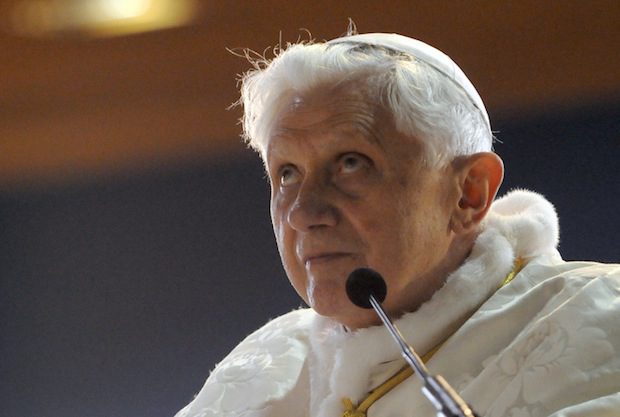Does the Synod Matter, Anyway?

A conservative friend who is not a Roman Catholic e-mailed just now to say:
Re pope and marriage and gays and fathers and mothers — I really think what all this comes down to is the church no longer occupies a tenable position when it
comes to laying down rules about sexuality of any kind.
Consider that he might be right. Consider that this might actually be the most important principle to keep in mind in interpreting news from Rome.
At the First Things symposium I attended a couple of weeks ago, the sex abuse scandal came up in conversation a few times, but the group didn’t dwell on it. I wish now that we had talked about it more. A couple of the younger academics were emphatic that the Roman church simply cannot be heard on sexual matters by the young, in large part because of the scandal. Catholic sexual ethics would be a hard sell in any case, given the Zeitgeist, but after the scandal, how do the bishops and priests have any credibility at all?
I think it’s very easy for Catholic intellectuals to place unwarranted emphasis on doctrines, encyclicals, bishops’ statements, and the like. Not only do intellectuals take those kinds of things a lot more seriously than ordinary people in the pews do, but conservative Catholic intellectuals (and the conservative laity) are the only Catholics these days who are inclined to shape their consciences and their behavior according to these statements. Someone around the table at the First Things event was trying to be optimistic, and said, “We” — meaning orthodox Catholics — “have the seminaries,” and so forth.
So what? Even if that were true, which I doubt, is that really going to make much of a difference? American Catholics make their own minds up. I’m no longer Catholic, as you know, but in 13 years of practicing Catholicism, I never saw any evidence that the teaching authority of the Church made a tinker’s damn to anybody outside of a relatively small circle of intellectuals, priests, blog readers and EWTN watchers.
The whole doctrinal edifice of Catholicism is extremely impressive when viewed from the outside, and it looks like a safe refuge from the storms tossing and sinking Protestant churches. It’s not true, or if it is true, it’s not true in the way idealists think. (Understand that I’m not trying to dissuade people from converting to Catholicism; if you are inclined to go that way, though, you should understand what you are going to get, and what you are not going to get.) The truth is, the pope is in Rome, and Rome is a long, long way away from your local parish. The trad Christopher Ferrara reported a while back that Pope Benedict told Archbishop Fellay, “My authority ends at that door”; if that’s true, I think it’s an accurate statement about the reality of things in the Catholic Church. I’d like to think I was wrong, but I don’t think I am wrong.
So, the Synod on the Family can say what it wants to say, but I doubt it will matter much one way or the other, in the parishes, or in the lives of ordinary Catholics. It will liberalize things in many places, but I suspect that means mostly that the actual way of doing things in those parishes will merely be confirmed by Rome, or perceived to be confirmed by Rome. Data is not the plural of anecdote, of course, but from my own experience, it is vain to think that anything the Synod declares is going to change much on the pastoral level. Most priests don’t talk about sex, and if they did, most parishioners wouldn’t listen anyway. They wouldn’t have listened before the scandal, and the certainly won’t afterward.
This does not make Catholic doctrine untrue! It is a common conservative Catholic error, one I used to make, that doctrine is decisive. Maybe in an earlier age, but not ours. Doctrine, especially doctrine that is as countercultural as Catholic teaching on sexual morality, requires charismatic authority to be accepted and lived by. The authority of the Catholic institution exists only on paper. I am not making a theological statement, but a sociological one.
Here’s what I think: Catholics are on their own now. The institutional breakdown is severe and getting worse. Hear me loud and clear: this does not mean the Church’s teaching authority has ceased to exist for Catholics. By definition, it cannot cease to exist; that’s what it means to be Catholic, and not Protestant or Orthodox. What I’m saying is that if you’re waiting for the institution to get its act together and regain its authority, you are leaving yourself and your children vulnerable. Dante kept his faith in a far more corrupt world, in a far more decadent Church. It can be done. As a fellow traveler who wishes the Catholic Church well — I really do believe that the future of Western civilization depends on the health of the Roman church — I hope my Catholic brothers and sisters read the signs and act. Forms of the Benedict Option, I think, is the only thing that makes sense.
These are not normal times. If you think things are going to come right again if you only sit quite still and wait, you are going to lose it all.
If I’m wrong, tell me why I’m wrong.
Subscribe for as little as $5/mo to start commenting on Rod’s blog.